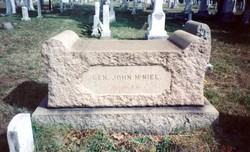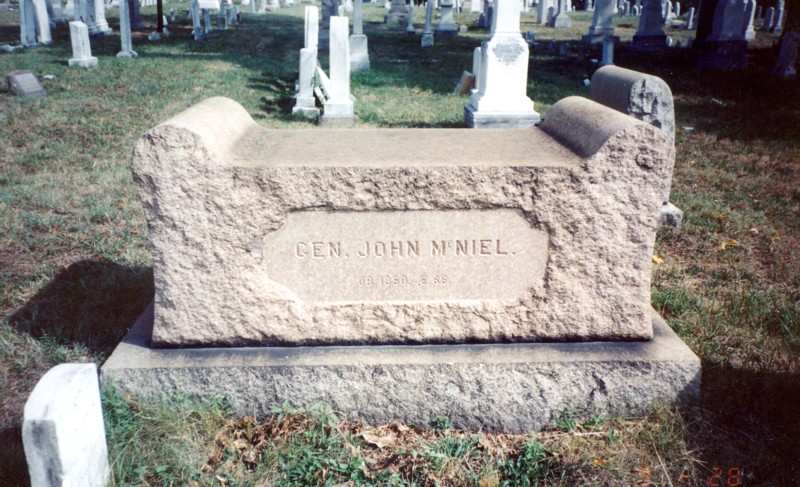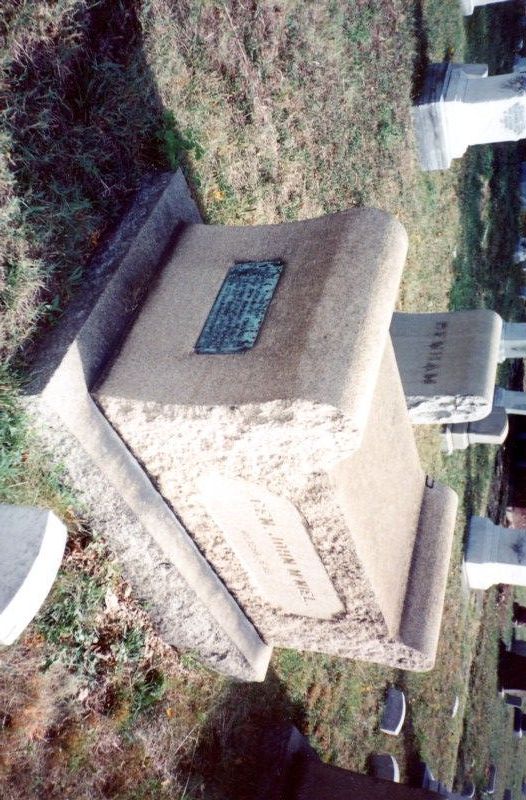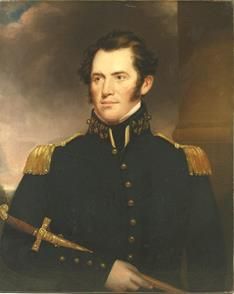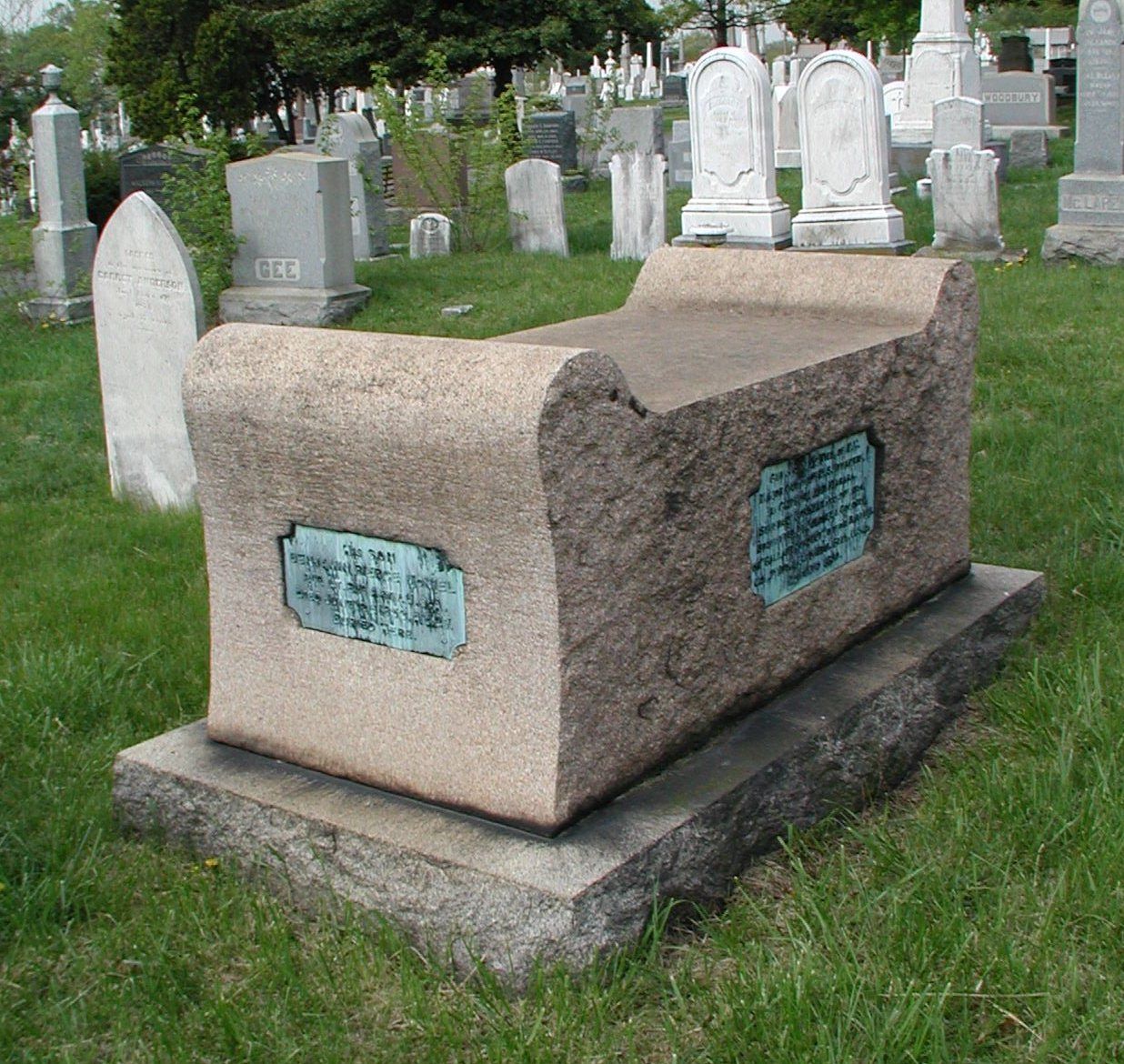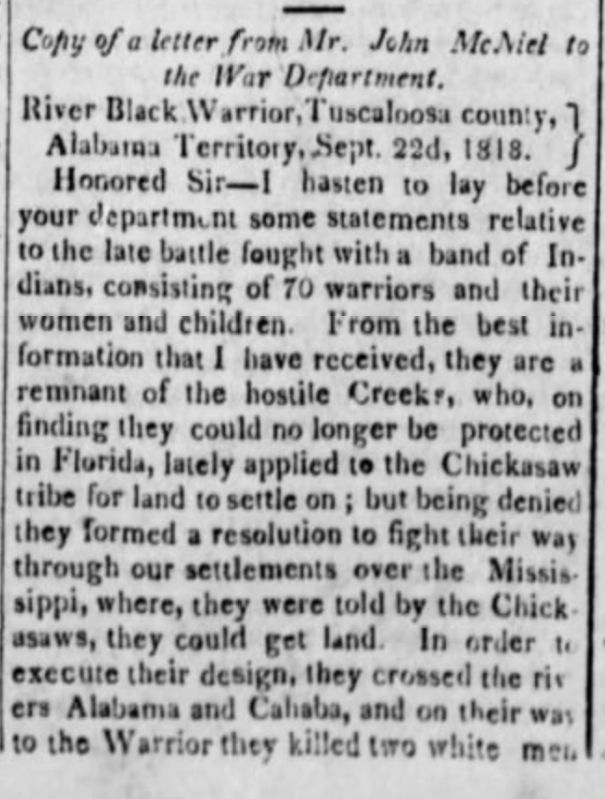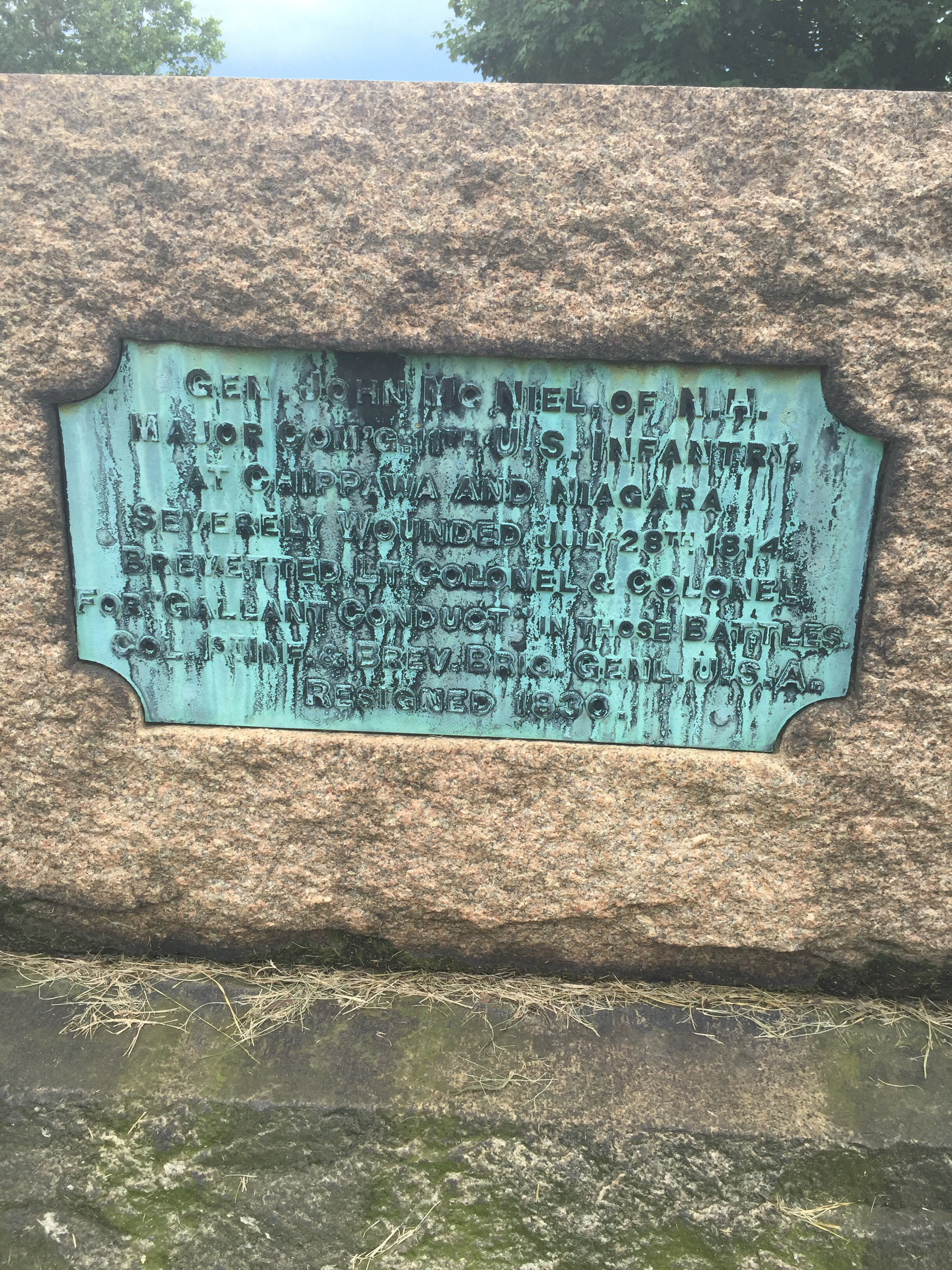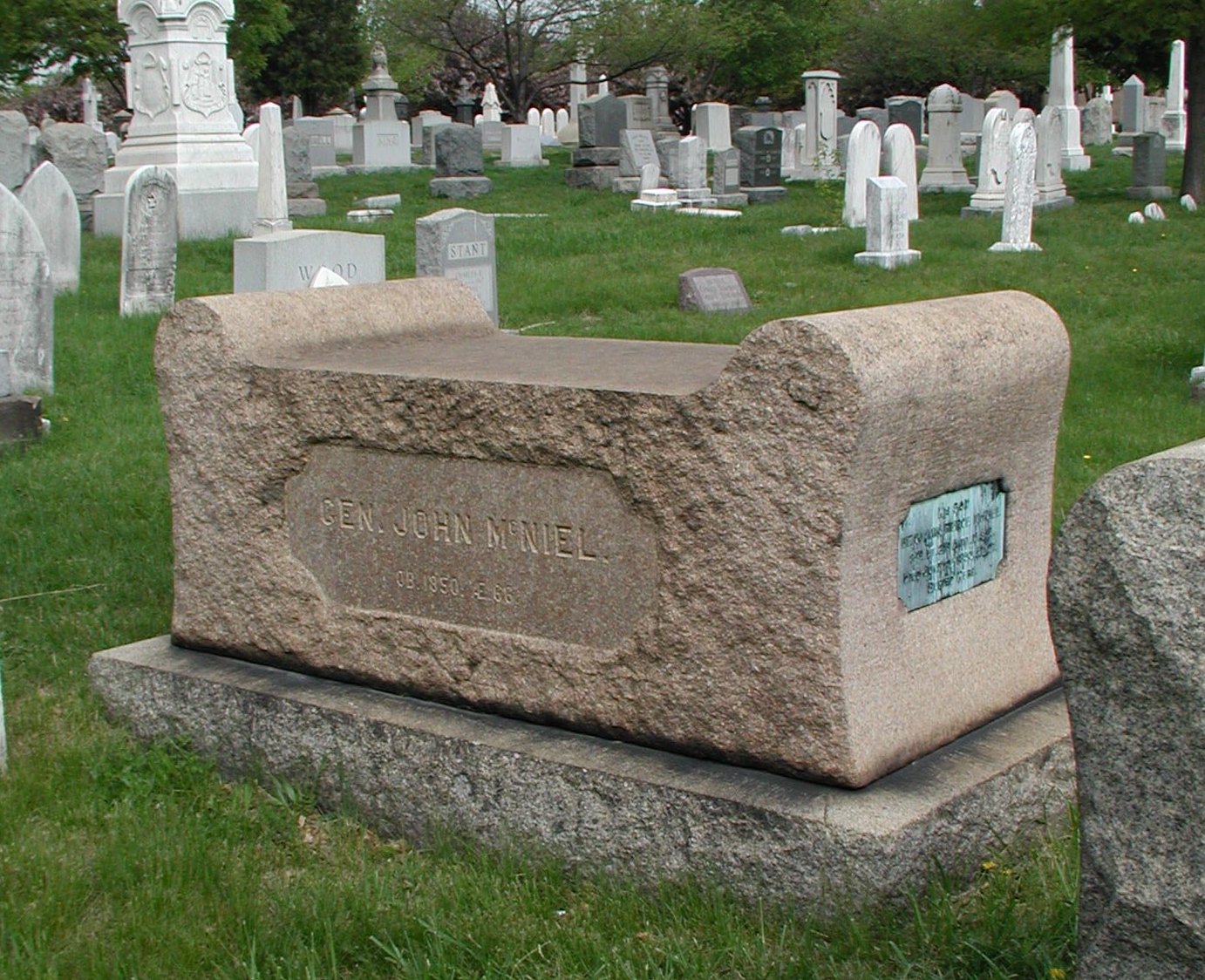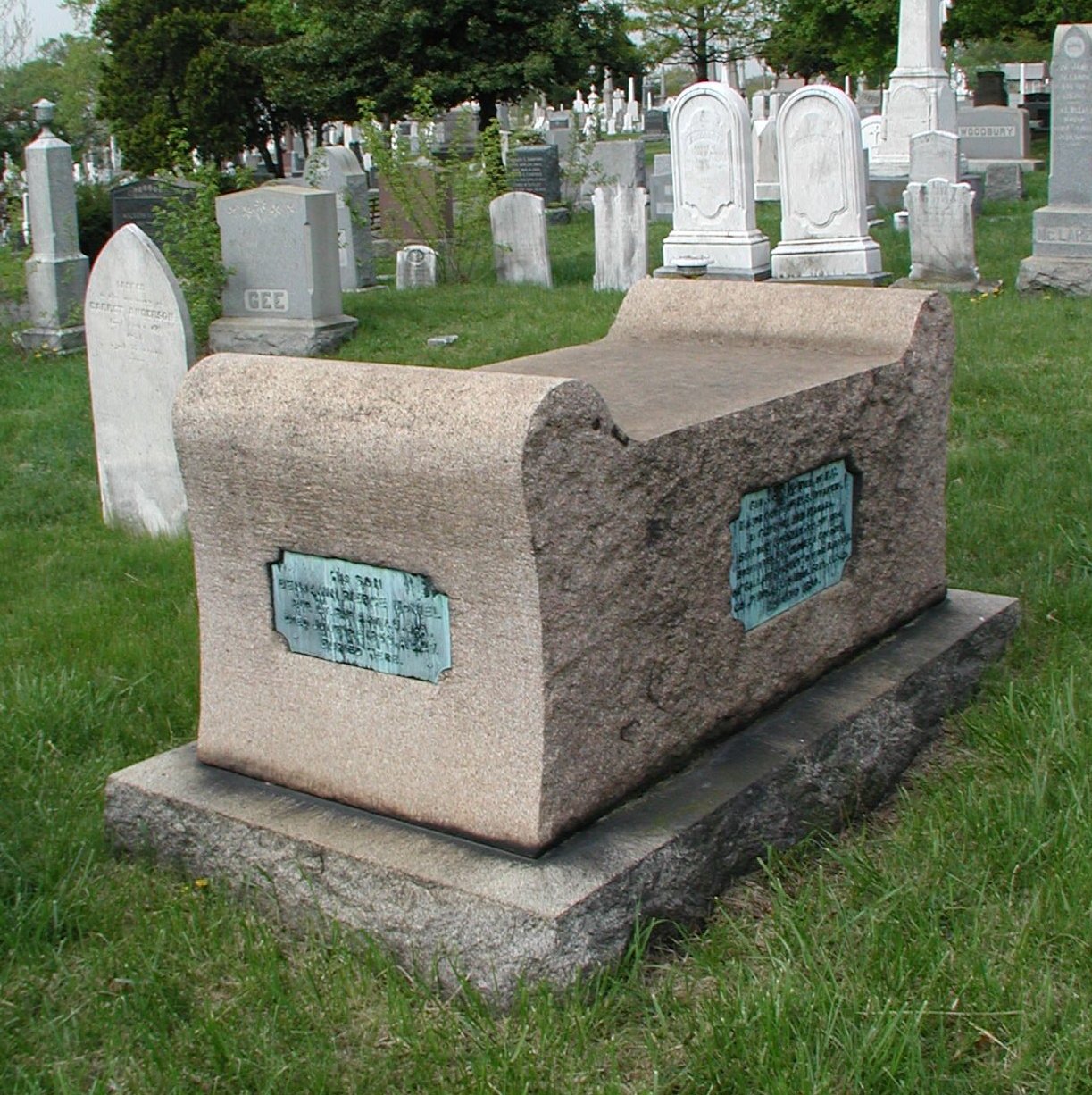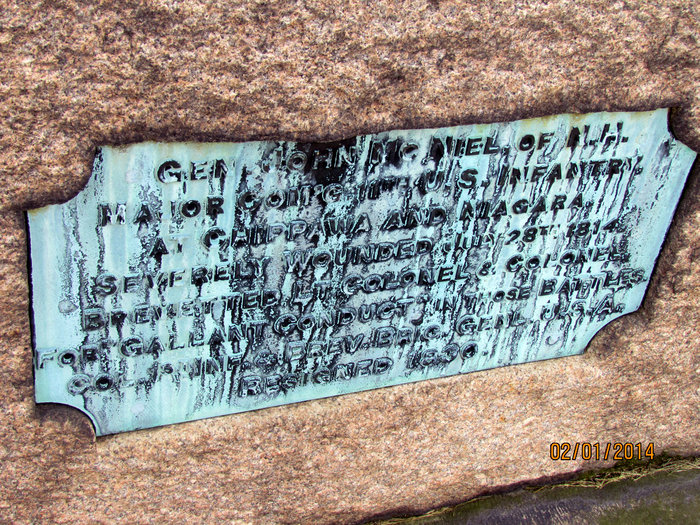Obituary
Died, on Saturday afternoon last, at the Irving Hotel, in this city, General John McNeil, a distinguished officer of the War of 1812. His arrival from Boston, where he is Surveyor of the Port, as but just announced to us when we were apprised of his death.
This was sudden and unexpected to us, though we since learn that he has long been declining, and suffered much from a painful and protracted illness.
He was born in Hillsborough, New Hampshire, and at the time of his death was in the 66th year of his age.
In 1812 he
entered the army as a captain of infantry, and served with great distinction in that second war of independence. In 1814 he belonged to the first brigade, commanded by Gen. Scott, which opened a most glorious career of arms, in crossing the Niagara Straits and encountering the British veterans of the peninsular war.
At the battle of Chippewa McNeil commanded the advance of Scott's brigade, the 11th regiment, Col. Campbell having been wounded in the early part of the action. In crossing the creek the leading regiment of the column encountered a most murderous fire, by which, in a few moments forty men were cut down. He advanced steadily on, with Jesup's regiment next, and at the distance of thirty paces from the enemy they deployed into line; McNeil, of herculean frame and stentorian voice, called aloud, "Give it to them--take vengeance on them, boys." And again, at the battle of Bridgewater, he had the honor to lead the celebrated
Scott's brigade into action, in the face of a British battery of nine guns. In less than an hour the whole brigade was literally cut to pieces. As Ripley and Portel's brigades came into action McNeil redoubled his energies; when the 22d infantry broke, (its Colonel, Brady, having fallen,) McNeil rallied and reformed it. At this period of the action his horse was killed by a cannon ball and himself wounded in both legs by cannister shot, a six-ounce ball passing directly through his right knee. At the close of the war he was retained in the army, and served on the Lakes and the Mississippi till 1829, when he was appointed a commissioner to negotiate with the Sac and Fox Indians. At the conclusion of his mission he repaired to Washington, and subsequently resigned his appointment in the army, but only to serve his country in a civil capacity.
He was
appointed Surveyor of the Port of Boston, which office he filled till the day of his death.
The funeral of the deceased will take place on Tuesday afternoon; of the hour due notice will be given to thepublic.
Obituary
Died, on Saturday afternoon last, at the Irving Hotel, in this city, General John McNeil, a distinguished officer of the War of 1812. His arrival from Boston, where he is Surveyor of the Port, as but just announced to us when we were apprised of his death.
This was sudden and unexpected to us, though we since learn that he has long been declining, and suffered much from a painful and protracted illness.
He was born in Hillsborough, New Hampshire, and at the time of his death was in the 66th year of his age.
In 1812 he
entered the army as a captain of infantry, and served with great distinction in that second war of independence. In 1814 he belonged to the first brigade, commanded by Gen. Scott, which opened a most glorious career of arms, in crossing the Niagara Straits and encountering the British veterans of the peninsular war.
At the battle of Chippewa McNeil commanded the advance of Scott's brigade, the 11th regiment, Col. Campbell having been wounded in the early part of the action. In crossing the creek the leading regiment of the column encountered a most murderous fire, by which, in a few moments forty men were cut down. He advanced steadily on, with Jesup's regiment next, and at the distance of thirty paces from the enemy they deployed into line; McNeil, of herculean frame and stentorian voice, called aloud, "Give it to them--take vengeance on them, boys." And again, at the battle of Bridgewater, he had the honor to lead the celebrated
Scott's brigade into action, in the face of a British battery of nine guns. In less than an hour the whole brigade was literally cut to pieces. As Ripley and Portel's brigades came into action McNeil redoubled his energies; when the 22d infantry broke, (its Colonel, Brady, having fallen,) McNeil rallied and reformed it. At this period of the action his horse was killed by a cannon ball and himself wounded in both legs by cannister shot, a six-ounce ball passing directly through his right knee. At the close of the war he was retained in the army, and served on the Lakes and the Mississippi till 1829, when he was appointed a commissioner to negotiate with the Sac and Fox Indians. At the conclusion of his mission he repaired to Washington, and subsequently resigned his appointment in the army, but only to serve his country in a civil capacity.
He was
appointed Surveyor of the Port of Boston, which office he filled till the day of his death.
The funeral of the deceased will take place on Tuesday afternoon; of the hour due notice will be given to thepublic.
Family Members
Advertisement
Explore more
Sponsored by Ancestry
Advertisement
